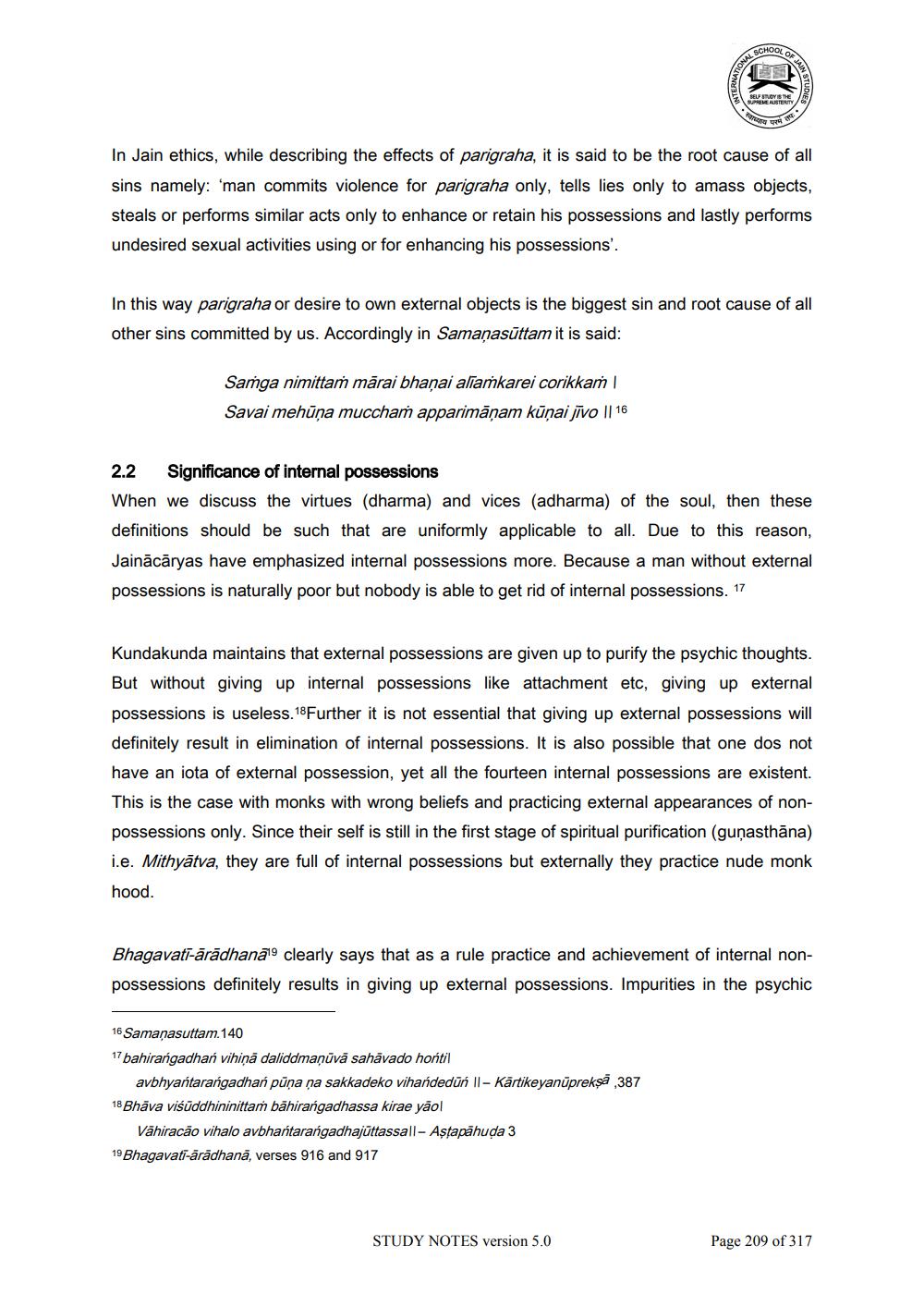________________
Samga nimittam mārai bhaņai aliamkarei corikkam | Savai mehūņa muccham apparimāņam kūņai jīvo || 16
SCHOOL
OF
SELF STUDY IS THE SUPREME AUSTERITY
स्वाध्याय
परमे
In Jain ethics, while describing the effects of parigraha, it is said to be the root cause of all sins namely: 'man commits violence for parigraha only, tells lies only to amass objects, steals or performs similar acts only to enhance or retain his possessions and lastly performs undesired sexual activities using or for enhancing his possessions'.
In this way parigraha or desire to own external objects is the biggest sin and root cause of all other sins committed by us. Accordingly in Samanasuttam it is said:
16 Samanasuttam.140
17 bahirangadhań vihiņā daliddmaṇūvā sahāvado hontil
avbhyantarangadhań pūņa na sakkadeko vihandedūń II- Kartikeyanuprekṣā,387
18 Bhāva viśūddhininittaṁ bahirangadhassa kirae yão!
Vähiracão vihalo avbhantarangadhajuttassall-Aṣṭapahuḍa 3
19 Bhagavati-ärädhanā, verses 916 and 917
राप
STUDY NOTES version 5.0
2.2
Significance of internal possessions
When we discuss the virtues (dharma) and vices (adharma) of the soul, then these definitions should be such that are uniformly applicable to all. Due to this reason, Jainācāryas have emphasized internal possessions more. Because a man without external possessions is naturally poor but nobody is able to get rid of internal possessions. 17
Kundakunda maintains that external possessions are given up to purify the psychic thoughts. But without giving up internal possessions like attachment etc, giving up external possessions is useless. 18Further it is not essential that giving up external possessions will definitely result in elimination of internal possessions. It is also possible that one dos not have an iota of external possession, yet all the fourteen internal possessions are existent. This is the case with monks with wrong beliefs and practicing external appearances of nonpossessions only. Since their self is still in the first stage of spiritual purification (gunasthāna) i.e. Mithyatva, they are full of internal possessions but externally they practice nude monk hood.
Bhagavati-ārādhana19 clearly says that as a rule practice and achievement of internal nonpossessions definitely results in giving up external possessions. Impurities in the psychic
Page 209 of 317




